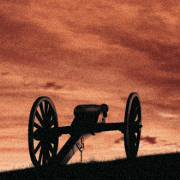Sorry, Ken Burns, But Your Eleven-and-a-Half-Hour Civil War Documentary Is Not Real Comedy
It feels like these days it’s fashionable to make just about anything and call it “comedy.” Maybe I’m old-fashioned, but I think if it was good enough for Groucho Marx, Milton Berle, and Jerry Seinfeld, it’s good enough for me. So I’ve got to speak the truth about the latest so-called “comedy” special I saw on Netflix this weekend:
Sorry, Ken Burns, but your eleven-and-a-half-hour documentary about the American Civil War is not real comedy.
This supposedly groundbreaking approach to comedy has already spawned the lionizing phrase “The Ken Burns Effect,” as if there is anything remotely comedic about slowly zooming and panning over footage of still photographs. I guess I must be missing the joke.
Before you whine that I’m insulting your artistic work, let me be clear that there can be value in a documentary, the same way there can be value in a one-person show, or a Vitamix instruction manual, or a pair of New Balance 574 sneakers. These can all be useful things, but why must you call them comedy?
Comedy’s job is to make people laugh. In watching your first big special, I certainly learned something about the causes, progress, resolution, and aftermath of the American Civil War—but I found myself waiting for punchlines that never arrived. You might have sharpened your act and avoided this particular problem if you’d tried out the material in comedy clubs (unfashionable for the new wave of anti-comedians, I know) instead of using public television.
By the way: the lack of a live audience, too, struck me as pretentious. Hey, buddy, comedy without an audience isn’t some new innovation. It’s called improv. See? Now that’s comedy!
There’s also something to be said for taste. I don’t mean to be a spoilsport, but I fail to see the humor in a conflict that killed 750,000 and from whose wounds our nation still has not fully healed. Kenny, man, I’ll cut you some slack here. You’re a young comic, and I remember the temptation to make my mark by shocking the crowd. I used to work blue with the best of them. But if you’re aiming to get those high-paying college and state-fair gigs down the line, you’re going to have to realize that people who are coming out to see you just want to have a good time. They don’t need to hear your “hilarious” take on the Battle of Antietam. I didn’t chuckle once as you tried to milk the war’s deadliest clash for laughs. I’ll bet that, in a few years, you’ll be ashamed to have tried.
If it feels like I’m piling on, I apologize. But Mr. Burns: your set goes on for more than eleven hours. One secret to comedy is economy of language
Sam Waterston is not Abraham Lincoln, and Morgan Freeman is not Frederick Douglass—your voice-over choices notwithstanding. I hate to break it to you, Ken, but real comedy is based on truth.
That’s all for now. Please stay tuned for my next column, in which I eviscerate Rodney Dangerfield’s 1980 album No Respect for ignoring the crucial challenge of the US–USSR nuclear arms race. Rodney, my friend; it hurts to say, but your bawdy, self-deprecating one-liners aren’t exactly what I’d call significant contributions to international diplomacy.





